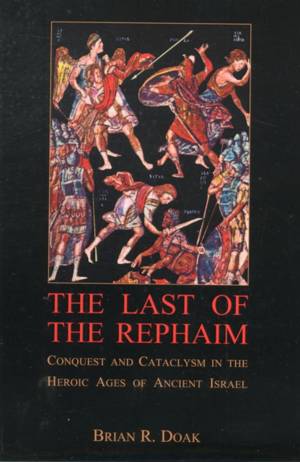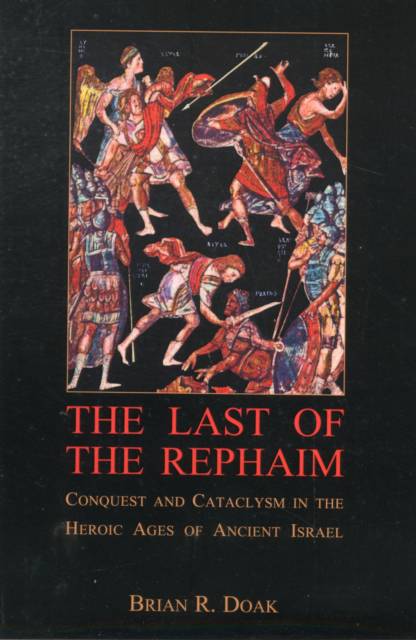
- Afhalen na 1 uur in een winkel met voorraad
- Gratis thuislevering in België vanaf € 30
- Ruim aanbod met 7 miljoen producten
- Afhalen na 1 uur in een winkel met voorraad
- Gratis thuislevering in België vanaf € 30
- Ruim aanbod met 7 miljoen producten
Zoeken
€ 33,95
+ 67 punten
Omschrijving
The figure of the giant has haunted the literatures of the ancient Mediterranean world, from the Greek Gigantomachy and other Aegean epic literatures to the biblical contexts of the ancient Near East. In The Last of the Rephaim, Brian Doak argues that the giants of the Hebrew Bible are a politically, theologically, and historiographically generative group, and through their oversized bodies, readers gain insight into central aspects of Israel's symbolic universe. All that is overgrown or physically monstrous represents a connection to primeval chaos, and stands as a barrier to creation and right rule. Giants thus represent chaos-fear, and their eradication is a form of chaos maintenance by both human and divine agents. Doak argues that these biblical traditions participate in a broader Mediterranean conversation regarding giants and the end of the heroic age--a conversation that inevitably draws the biblical corpus into a discussion of the function of myth and epic in the ancient world, with profound implications for the politics of monotheism and monarchy in ancient Israel.
Specificaties
Betrokkenen
- Auteur(s):
- Uitgeverij:
Inhoud
- Aantal bladzijden:
- 312
- Taal:
- Engels
- Reeks:
Eigenschappen
- Productcode (EAN):
- 9780674066731
- Verschijningsdatum:
- 7/01/2013
- Uitvoering:
- Paperback
- Formaat:
- Trade paperback (VS)
- Afmetingen:
- 154 mm x 229 mm
- Gewicht:
- 494 g

Alleen bij Standaard Boekhandel
+ 67 punten op je klantenkaart van Standaard Boekhandel
Beoordelingen
We publiceren alleen reviews die voldoen aan de voorwaarden voor reviews. Bekijk onze voorwaarden voor reviews.











